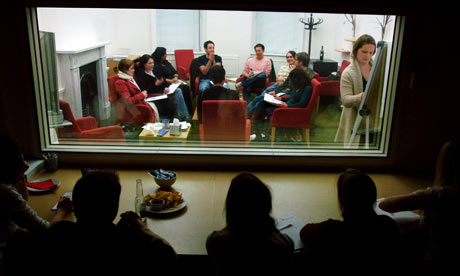As humans we're good at separating things based on categories. The Dewey Decimal System systematically separates mathematics and history into disparate locations, but your zettelkasten shouldn't force this by overthinking categories. Perhaps the overlap of math and history is exactly the interdisciplinary topic you're working toward? If this is the case, just put cards into the slip box closest to their nearest related intellectual neighbor—and by this I mean nearest related to you, not to Melvil Dewey or anyone else. Over time, through growth and branching, ideas will fill in the interstitial spaces and neighboring ideas will slowly percolate and intermix. Your interests will slowly emerge into various bunches of cards in your box. Things you may have thought were important can separate away and end up on sparse branches while other areas flourish.
If you make the (false) choice to separate math and history into different "sections" it will be much harder for them to grow and intertwine in an organic and truly disciplinary way. Universities have done this sort of separation for hundreds of years and as a result, their engineering faculty can be buildings or even entire campuses away from their medical faculty who now want to work together in new interdisciplinary ways. This creates a physical barrier to more efficient and productive innovation and creativity. It's your zettelkasten, so put those ideas right next to each other from the start so they can do the work of serendipity and surprise for you. Do not artificially separate your favorite ideas. Let them mix and mingle and see what comes out of them.
If you feel the need to categorize and separate them in such a surgical fashion, then let your index be the place where this happens. This is what indices are for! Put the locations into the index to create the semantic separation. Math related material gets indexed under "M" and history under "H". Now those ideas can be mixed up in your box, but they're still findable. DO NOT USE OR CONSIDER YOUR NUMBERS AS TOPICAL HEADINGS!!! Don't make the fatal mistake of thinking this. The numbers are just that, numbers. They are there solely for you to be able to easily find the geographic location of individual cards quickly or perhaps recreate an order if you remove and mix a bunch for fun or (heaven forfend) accidentally tip your box out onto the floor. Each part has of the system has its job: the numbers allow you to find things where you expect them to be and the index does the work of tracking and separating topics if you need that.
The broader zettelkasten, tools for thought, and creativity community does a terrible job of explaining the "why" portion of what is going on here with respect to Luhmann's set up. Your zettelkasten is a crucible of ideas placed in juxtaposition with each other. Traversing through them and allowing them to collide in interesting and random ways is part of what will create a pre-programmed serendipity, surprise, and combinatorial creativity for your ideas. They help you to become more fruitful, inventive, and creative.
Broadly the same thing is happening with respect to the structure of commonplace books. There one needs to do more work of randomly reading through and revisiting portions to cause the work or serendipity and admixture, but the end results are roughly the same. With the zettelkasten, it's a bit easier for your favorite ideas to accumulate into one place (or neighborhood) for easier growth because you can move them around and juxtapose them as you add them rather than traversing from page 57 in one notebook to page 532 in another.
If you use your numbers as topical or category headings you'll artificially create dreadful neighborhoods for your ideas to live in. You want a diversity of ideas mixing together to create new ideas. To get a sense of this visually, play the game Parable of the Polygons in which one categorizes and separates (or doesn't) triangles and squares. The game created by Vi Hart and Nicky Case based on the research of Thomas Schelling provides a solid example of the sort of statistical mechanics going on with ideas in your zettelkasten when they're categorized rigidly. If you rigidly categorize ideas and separate them, you'll drastically minimize the chance of creating the sort of useful serendipity of intermixed and innovative ideas.
It's much harder to know what happens when you mix anthropology with complexity theory if they're in separate parts of your mental library, but if those are the things that get you going, then definitely put them right next to each other in your slip box. See what happens. If they're interesting and useful, they've got explicit numerical locators and are cross referenced in your index, so they're unlikely to get lost. Be experimental occasionally. Don't put that card on Henry David Thoreau in the section on writers, nature, or Concord, Massachusetts if those aren't interesting to you. Besides everyone has already done that. Instead put him next to your work on innovation and pencils because it's much easier to become a writer, philosopher, and intellectual when your family's successful pencil manufacturing business can pay for you to attend Harvard and your house is always full of writing instruments from a young age. Now you've got something interesting and creative. (And if you must, you can always link the card numerically to the other transcendentalists across the way.)
In case they didn't hear it in the back, I'll shout it again:
ACTIVELY WORK AGAINST YOUR NATURAL URGE TO USE YOUR ZETTELKASTEN NUMBERS AS TOPICAL HEADINGS!!!
